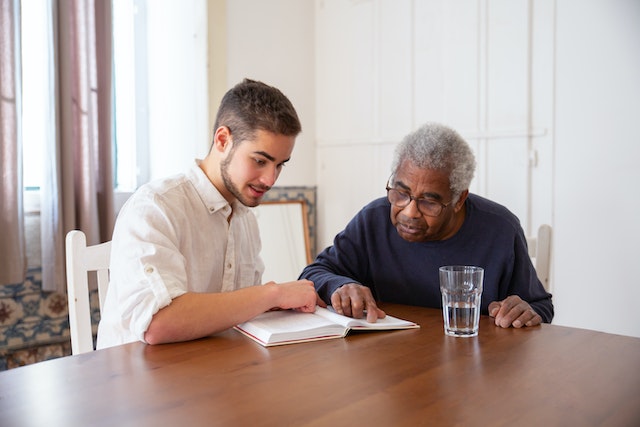Empathy and compassion are frequently lauded as the foundations of delivering exceptional care. While these traits are undeniably vital, there’s an often-overlooked skill that distinguishes the finest caregivers: listening.
How does listening influence caregiving? Let’s delve into this relationship.
Understanding the Caregiver’s Role
Caregivers hold a significant place in the lives of those they assist, be it the elderly, individuals with disabilities, or patients in medical environments. Their responsibility extends beyond addressing physical needs; they also provide emotional support. To excel in this, caregivers must perfect the skill of active listening.
The Essence of Active Listening
Active listening isn’t merely about hearing words; it demands deep engagement with the speaker. Caregivers who embrace active listening concentrate on both the verbal message and the underlying emotions. This encompasses giving undivided attention, sustaining eye contact, and genuinely valuing the speaker’s perspective. Here’s why active listening is indispensable for caregivers:
It Cultivates Trust and Connection
Genuinely listening to someone signals that you cherish and acknowledge their thoughts and feelings. This nurtures trust and forges a robust emotional bond between the caregiver and the individual receiving care. A solid relationship enhances the caregiving journey for both.
It Empowers the Care Recipient
By actively listening, caregivers empower those in their care, granting them the space to articulate concerns, preferences, and feelings. This is paramount when assisting the elderly or those with disabilities, as it upholds their autonomy and self-worth.
It Provides a Deeper Insight into Their Needs
Active listening equips caregivers with a more profound insight into the physical and emotional needs of those they care for. It helps pinpoint concerns that might otherwise go unnoticed, enabling more effective responses. For instance, caregivers can more adeptly recognize and address signs of discomfort or pain.
It Enhances Communication
Effective communication is central to caregiving. Attentive listeners can relay information, directions, and comfort more efficiently. They can also pose clarifying questions, ensuring the individual feels understood and valued.
It Mitigates Caregiver Stress
While caregiving can be emotionally draining, active listening can alleviate caregiver stress. When caregivers sense their efforts are recognized and valued, they are more inclined to find satisfaction in their role.
It Promotes Emotional Expression
Often, those receiving care grapple with intricate emotions like fear, grief, or exasperation. Active listening offers a sanctuary for them to voice these feelings, which can be cathartic and restorative.
The Challenges of Active Listening
Though the advantages of active listening for caregivers are evident, it’s crucial to recognize its inherent challenges. Caregivers juggle numerous duties, and carving out moments for attentive listening can be tough. They might also face communication hurdles, such as language disparities or cognitive challenges, which intensify the demands of active listening. Surmounting these obstacles necessitates patience and dedication. Caregivers can gain from training and resources to bolster their listening capabilities. They might also consider respite care, ensuring they prioritize self-care, which subsequently refines their listening skills.
In the realm of caregiving, the most commendable caregivers are also the most attentive listeners.

